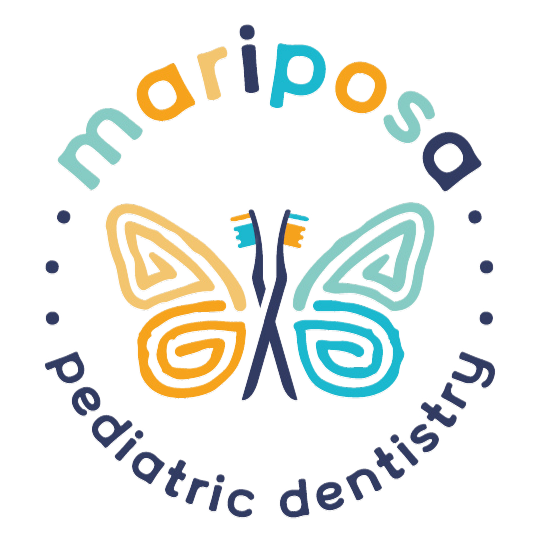Pulp Therapy
Pulp therapy can be used to save your child’s tooth when its pulp begins to decay or becomes infected. The process is similar to a root canal but performed on primary or immature permanent teeth. At Mariposa Pediatric Dentistry, we provide vital pulp therapy to:
- Restore the health and functioning of your little one’s tooth
- Relieve any pain or discomfort they’re experiencing
- Help prevent the need for more invasive procedures like extractions
Vital pulp therapy is a safe and effective treatment, but we understand that it can be stressful for both children and their parents. We’re dedicated to providing gentle, compassionate care in a warm and comforting environment. Request an appointment today to get started.
Beyond health benefits, this proactive approach can also translate into long-term savings. Pinpointing issues allows for timely intervention, preventing their escalation into larger problems and averting the need for more extensive procedures in the future.



What is Pulp Therapy?
If your child’s pulp is damaged or exposed, it can cause severe pain and sensitivity as well as put them at risk of decay and infection. Pulp therapy can be used to treat the damage and restore the health of the affected tooth or teeth.
Is pediatric pulp therapy covered by insurance?
While every insurance policy is different, most plans cover at least a portion of pulp therapy in primary teeth and immature permanent teeth.
Contact us, and we can help you determine your coverage.
Types of Pulp Therapy
Pulpotomy
A pulpotomy is a treatment best suited when the pulp infection hasn’t yet reached the root of the tooth. Your child will likely only require a local anesthetic to numb the area. We can also provide them with nitrous oxide (laughing gas) to help them feel more relaxed during the procedure.
During a pulpotomy, we’ll strategically remove the infected tissue from the top of the pulp, leaving the healthy tissue alone. We’ll then fill the empty space with a compound material to protect the remaining pulp and reduce inflammation. Depending on the amount of pulp removed, we may secure a partial or full crown to protect the natural tooth.
Pulpectomy
A pulpectomy is for children who have sustained more severe damage to the pulp, especially if the damage has reached the root of the tooth. It’s also called a root canal and is generally more invasive than a pulpotomy. However, local anesthetic is usually more than enough to prevent any pain or discomfort during the procedure.
A pulpectomy is performed by removing all of the existing pulp from the root. It’s then replaced with a compound, biocompatible material that functions just like the natural pulp. In most cases, a full crown is then placed on top.
Have questions about pulp therapy for your child? Contact us


Pulp Therapy FAQs
What are the signs that my child needs pulp therapy?
There are several symptoms to look for that can be a sign that the pulp has become damaged, including:
- Persistent or sudden tooth pain
- Sensitivity to cold and heat
- Swelling of the surrounding gums
- Chronic bad breath
- Fever
If you notice any of these symptoms in your child, visit us to get them diagnosed.
My child is especially anxious. Can you help?
Absolutely. We can discuss options with you to ease their anxiety and ensure they are as comfortable as possible throughout the process. In many cases, we can provide a sedation option that will help them relax or allow them to sleep through the treatment.
Is pulp therapy painful?
No. While inflamed or injured pulp can be extremely painful, pulp therapy itself is generally performed with local anesthesia. This numbs the area around the affected tooth and minimizes any discomfort during the therapy. In some cases, your child may experience some discomfort after the procedure, but it’s usually effectively managed with over-the-counter pain relievers.
How can I keep my child’s teeth healthy after pulp therapy?
The best way to keep your little one’s teeth healthy is to encourage them to practice good oral hygiene. This means brushing their teeth twice daily, flossing on a regular basis, and eating a nutritious diet. It’s also essential to schedule routine dental cleanings and checkups every six months or so.

